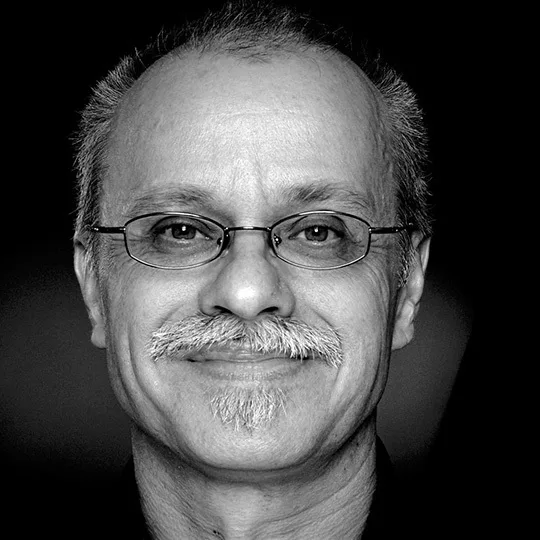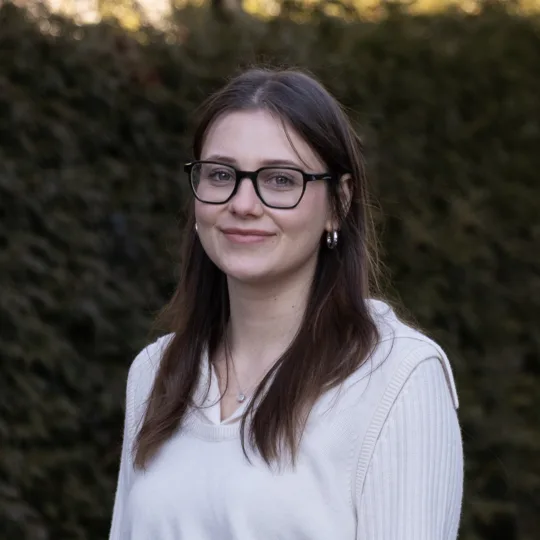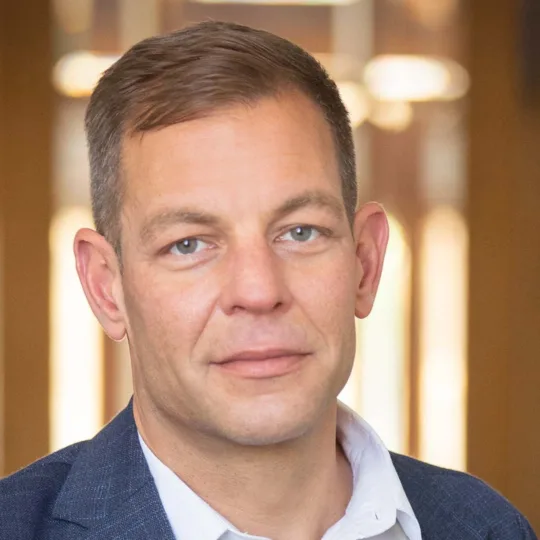Swiss Government Excellence Scholarships, more than just a career springboard...
At the end of 2023, the Federal Council fully renewed the composition of the Federal Commission for Scholarships for Foreign Students (FCS). We took the opportunity to interview Prof. Dr Stefano Bernasconi (ETH), the newly appointed FCS President, and the two former Co-Presidents Prof. Dr David Giauque (UniL) and Prof. Dr Michael Gibbert (USI). The three were asked to comment on the importance of Swiss Government Excellence Scholarships.
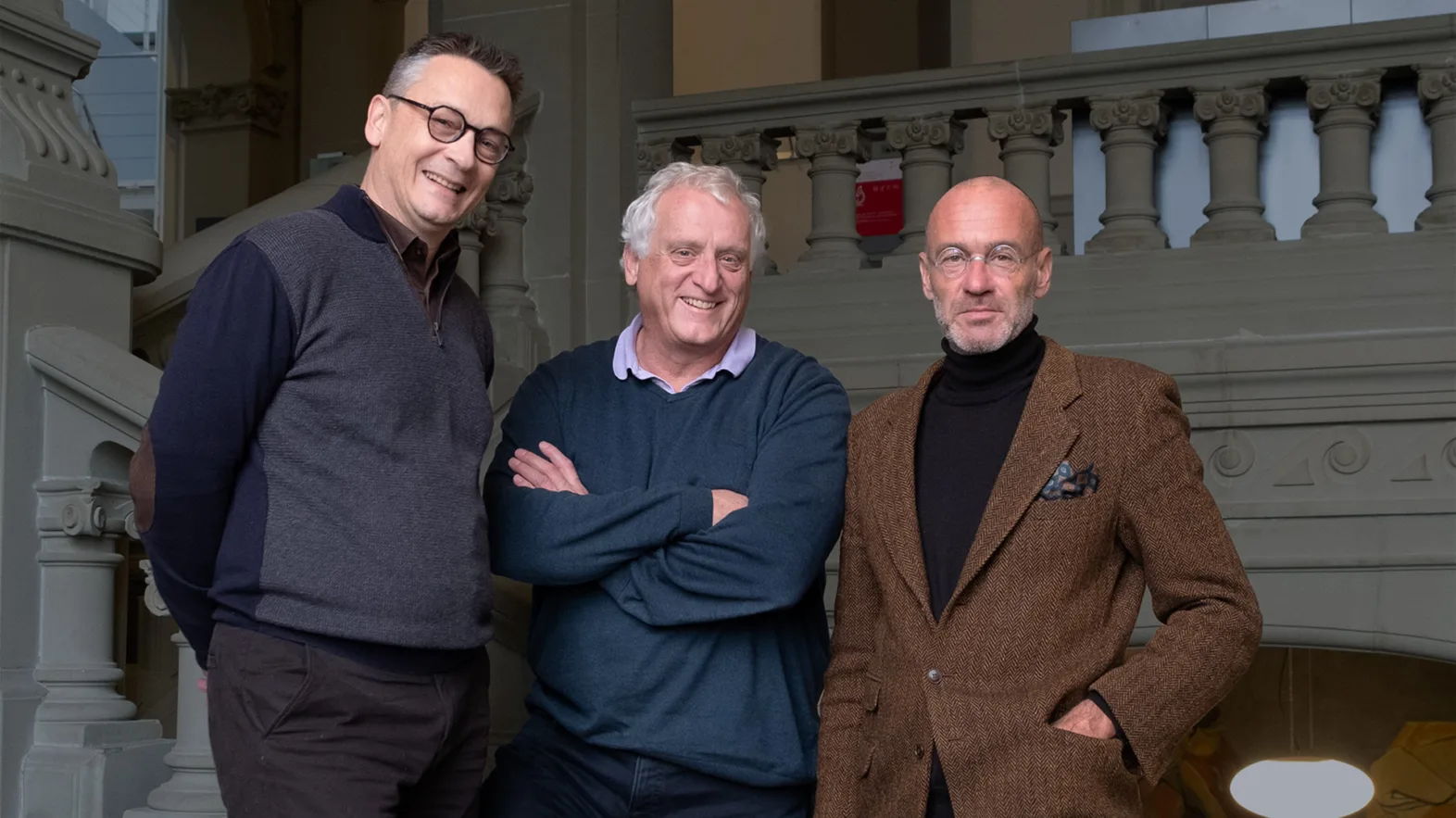
Each year, Swiss Government Excellence Scholarships are awarded to around 350 highly talented foreign students and researchers. The Federal Commission for Scholarships for Foreign Students (FCS) is responsible for selecting applicants and awarding these scholarships. Swiss Government Excellence Scholarships are a proven instrument of Switzerland's international strategy for education, research and innovation. Switzerland offers such scholarships to applicants from all countries with which it maintains diplomatic ties. The reciprocity principle applies to industrialised countries: if Switzerland makes scholarships available to citizens of these countries, then these partner countries are also expected to offer the same opportunities to Swiss students and researchers. Federal scholarships are intended for postgraduate students at PhD and postdoctoral level in all scientific disciplines as well as for art students at Master's degree level.
A fundamental prerequisite for each scholarship is the active support of a professor at a Swiss university. This not only benefits the career prospects of scholarship holders; it also gives Swiss academic supervisors access to the corresponding universities of origin. Swiss Government Excellence Scholarships thus help Swiss universities to develop their international networks and pave the way for long-term cooperation. Cantonal universities, universities of applied sciences, federal institutes of technology, Swissuniversities and mid-level faculty are all represented on the FCS. The members of this extra-parliamentary commission are elected by the Federal Council.
Prof. Dr. Stefano Bernasconi
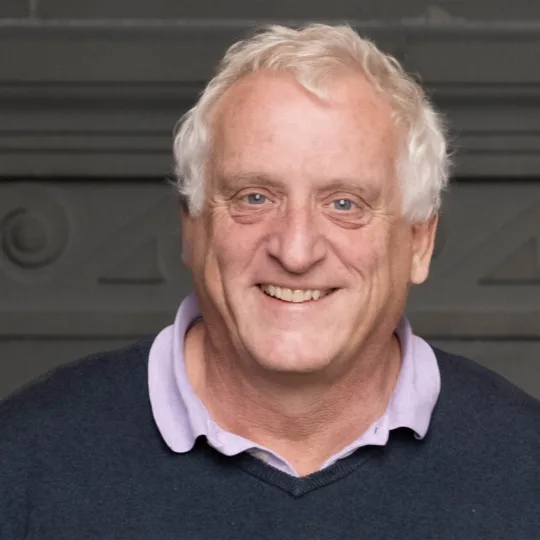
Prof. Dr. Stefano Bernasconi is Adjunct Professor of Biogeochemistry at the Institute of Geology, Department of Earth Sciences at ETH Zurich. He has been a member of the Federal Commission for Scholarships for Foreign Students (FCS) and an FCS delegate for ETH Zurich since 2013. On 1 January, he became FCS President, following his appointment by the Federal Council.
As the new FCS President from 2024, what goals have you set yourself for the next few years?
Given the current financial situation, which precludes any increases in the FCS budget, we need to find strategies to more closely align scholarship amounts with the high cost of living in Switzerland but at the same time avoid excessively reducing the total number of scholarships awarded (especially to applicants from developing countries). Another priority is to introduce the new application platform, which will digitalise the entire process of submitting and evaluating applications. The new system should enable committee members to work more easily and efficiently.
How important are these scholarships at ETH Zurich?
For ETH Zurich, the FCS programme opens up new networking opportunities with researchers and universities, especially in less privileged countries. These contacts often form the basis for further long-term projects. At the same time, the scholarships offer researchers from institutes in developing countries to undergo PhD or postdoctoral training at ETH. This training is an important stepping stone for a future career in their home country.
What challenges does the FCS scholarship programme face?
The current financial situation is the main obstacle, preventing us from offering competitive scholarships. The current scholarship amounts are not high enough to enable researchers to focus on their research without worrying about their financial situation. As a result, visiting professors often face the prospect of out-of-pocket expenses, which is a big stumbling block in many disciplines. Despite these difficulties, FCS scholarships are seen as a springboard for the academic careers of young researchers and, as such, are highly valued.
What opportunities does the FCS scholarship programme offer?
The FCS scholarship projects are driven by the students and young researchers themselves and thus follow a bottom-up approach. This gives visiting professors the opportunity to pursue new directions of research or gain access to geographical regions where the absence of local contacts would make on-site studies impossible. The intercultural and academic exchange is beneficial both to scholarship holders and the Swiss universities that host them.
What advice would you offer to prospective FCS scholarship applicants?
The first and often difficult step in the process of obtaining a scholarship is finding a professor who is willing to supervise the student or researcher. Before contacting professors, prospective applicants should find out what research interests the professor has and then contact this person with a concrete project proposal and a convincing CV. Professors receive a large number of collaboration requests, and so they need to be able to quickly assess the academic potential of a given applicant and determine whether they share the same academic interests.
Carte blanche: Is there anything you wish to add?
The awarding of federal scholarships is very competitive. In many cases, it is very difficult to choose from so many high-quality applicants. Our decision becomes even harder because we know that it has an important impact on the applicant’s future. However, our hard work pays off. Most scholarship holders say that the experiences during their studies in Switzerland have completely changed their lives and opened up new prospects for them, on both a professionally and personal level. This is a great source of motivation for us as delegates and for the universities that host scholarship holders.
Prof. Dr. David Giauque
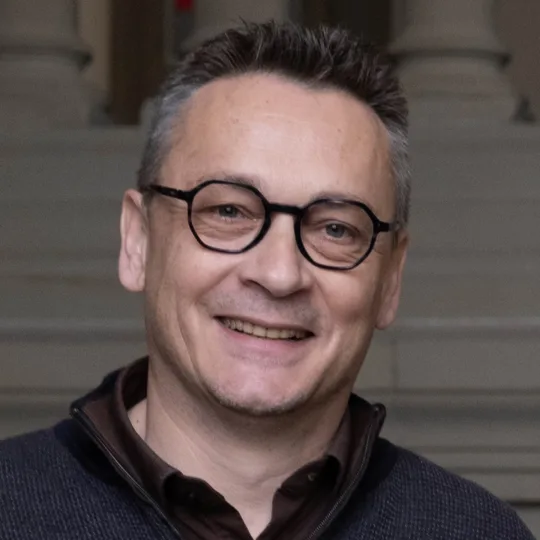
Prof. Dr. David Giauque is a full professor at the Swiss Graduate School of Public Administration (IDHEAP), which is part of the Faculty of Law, Criminal Justice and Public Administration at the University of Lausanne (UNIL). He was a member of the Federal Commission for Scholarships for Foreign Students (FCS) from 2012 to 2023. From early 2020 to the end of 2023, he also served as Co-President of the FCS.
What was a key highlight for you as a member and Co-President of the FCS?
Without a doubt, the very positive feedback we receive from our scholarship holders. This feedback shows the extent to which FCS scholarships help them to grow professionally in the academic world. When working in the FCS, we do not always fully grasp just how important this financial support is for young recipients from all over the world. I feel that it’s not just the recipients who benefit from these scholarships but Switzerland as well as they help to bolster our country’s image. Moreover, Swiss embassies and consulates all over the world have always strongly supported and shown interest in our work, which is a further indication of the importance of these scholarships.
How important are these scholarships at the University of Lausanne?
FCS scholarships are important, and many colleagues and academic supervisors tell us about their very enriching experiences with young scholars, whether they be PhD students or post-doctoral fellows. Intercultural exchanges play a major role and offer opportunities to critically re-examine research topics. FCS scholarships also help Swiss universities to develop their international activities and enable students from certain disadvantaged regions to gain exposure to the Swiss academic world. Of course, landing and integration is not always easy. Getting used to the Swiss weather and culture can be quite a challenge. Sometimes things do not work out as planned and stay does not live up to expectations. However, in most cases the scholarship holders benefit from their time in Switzerland.
What challenges does the FCS scholarship programme face?
It seems quite clear today that the FCS needs to think long and hard about the scholarship amounts awarded, to ensure that scholarship holders have enough financial resources to live decently in our country. We also need to reconsider the duration of our scholarship coverage. Funding a PhD thesis for three years often seems a bit short. As a result, we FCS delegates are often pressured by our universities to raise these issues at FCS meetings. We also need to make these scholarships advantageous for academic supervisors, who are generally not willing to work with PhD or post-doctoral students whose working conditions are considered suboptimal. It is therefore time to continue the discussions already initiated within the FCS to improve the conditions that FCS scholarship holders experience upon arrival. Switzerland's external image is also at stake.
What opportunities does the FCS scholarship programme offer?
Clearly, FCS scholarships enable young foreign researchers, some of whom come from disadvantaged regions, to materialise their dream of pursuing an academic career. A recent FCS-commissioned survey of scholarship holders clearly shows that this financial support has been effective in achieving FCS objectives. The vast majority of our scholarship holders go on to pursue their academic careers, and many of them find tenured positions in the academic world. What is even more remarkable is that most of these recipients return to their country of origin, thereby contributing to the academic development of their own country. FCS scholarships therefore do not produce a ‘brain drain’, but rather create leveraging effects that help to develop and improve the level of academic expertise in countries where there may be a strong need such improvements. The transfer of knowledge enabled by these scholarships is therefore absolutely essential. We are particularly proud of these favourable outcomes.
What advice would you offer to prospective FCS scholarship applicants?
All too often, young researchers reach out to university professors in a way that is far too imprecise. They send e-mails to Swiss university colleagues asking for their support for the FCS scholarship but often do this in bulk in an ‘industrial’ and indiscriminate fashion. The result is that the e-mail inboxes of their academic colleagues become flooded with messages that provide insufficient details about the direction of their research. This is particularly true in the case of students applying for PhD scholarships. My advice is therefore to target supervisors more effectively and explain the intellectual project that they wish to work on in the coming years. Each request for supervisory support should always be accompanied by a 4-5 page document clearly explaining the research question, the objectives pursued and the reasons why the applicant is applying to this particular academic supervisor. Applicants should also explain their choice of study location (why this university and not another in Switzerland?). A good application and a sound argument will always make the difference in a professor’s decision on whether or not to support an applicant.
Carte blanche: Is there anything you wish to add?
I would like to say what a great privilege it was to have served on this Committee for 12 years and to have shared so many delightful moments and discoveries. In particular, I enjoyed my interactions with the FCS Secretariat, which is staffed by very competent and dedicated people. I also greatly respect my fellow delegates and the members of the host offices of the various universities. The work of this Committee has always been carried out in a relaxed and open, but nonetheless serious and challenging atmosphere. Our shared values have kept us united in the defence of a common cause. These values include mutual appreciation and a willingness to listen to each other, working for the common good and rendering public service, fostering multiculturalism and demonstrating openness to the world. These are fundamental values that are currently at risk but which the members of the Commission and the FCS Secretariat have always upheld. I hope the FCS will continue for many years to come. Their work is vital to us.
Prof. Dr. Michael Gibbert
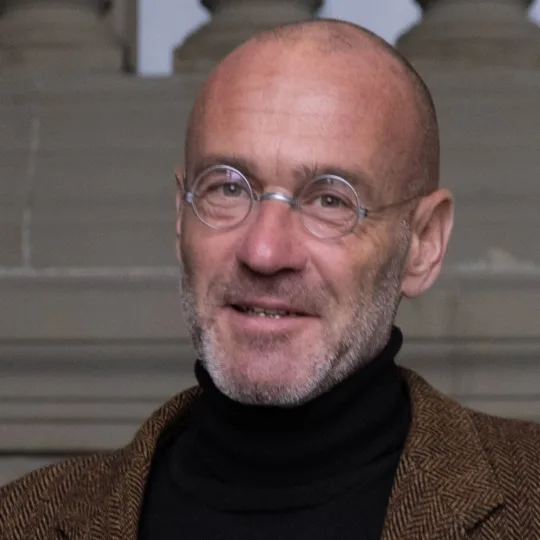
Prof. Dr. Michael Gibbert is a tenured Professor at the Institute of Marketing and Communication Management (IMCA), which is part of the Faculty of Communication, Culture and Society of the Università della Svizzera Italiana (USI). He was a member of the FCS and delegate of the Università della Svizzera italiana from 2012 to the end of 2023. From 2020 to 2023, he served as Co-President of the FCS.
What was a key highlight for you as a member and Co-President of the FCS?
The most rewarding moments for me as a committee member was giving young people the opportunity to experience a ‘life-changing scholarship’ in Switzerland and seeing them take that experience back to their home country to make a contribution there. This was and remains deeply fulfilling.
How important are these scholarships at the Università della Svizzera italiana?
The importance of this scholarship can be summed up as ‘small but mighty’, What I mean by this is that according to statistics, the USI unfortunately has the dubious distinction of having the lowest number of FCS scholarships. This is mainly because my colleagues do not support enough applications. You may have gathered that I have not been the best of marketing professors (laughs). However, the small number of scholarship holders that we have supervised regularly earn international prizes, and have achieved above-average success in securing funding (e.g. for SNSF projects).
What challenges does the FCS scholarship programme face?
One challenge is to make the scholarship more palatable to university colleagues. Currently, an FCS scholarship is roughly the equivalent of 60% of an SNSF grant, so scholarship holders often have to bring their own financial resources to the table... However, as I mentioned earlier, this investment is well worth it!
What opportunities does the FCS scholarship programme offer?
Firmly positioned as a core instrument of science diplomacy, FCS scholarships will always remain a niche product. Small but mighty.
What advice would you offer to prospective FCS scholarship applicants?
The topic and methodology set out in the research proposal must match the research priorities of the host institution and academic supervisor. This ‘pairing’ of research interests is crucial! One of the first things that I would say to an applicant: take a close look at what the potential supervisor publishes, what methodology they prefer and find out what theoretical building blocks are used and how. Ask yourselves the following questions: ‘Where do I fit in?’ ‘Will I be able to contribute to these efforts by opening up a new geographical context (i.e. my home country)?’
Carte blanche: Is there anything you wish to add?
Yes, I would like to thank all of my colleagues on the FCS for our truly enriching interdisciplinary collaboration. I will miss you all!
Contact
Author
